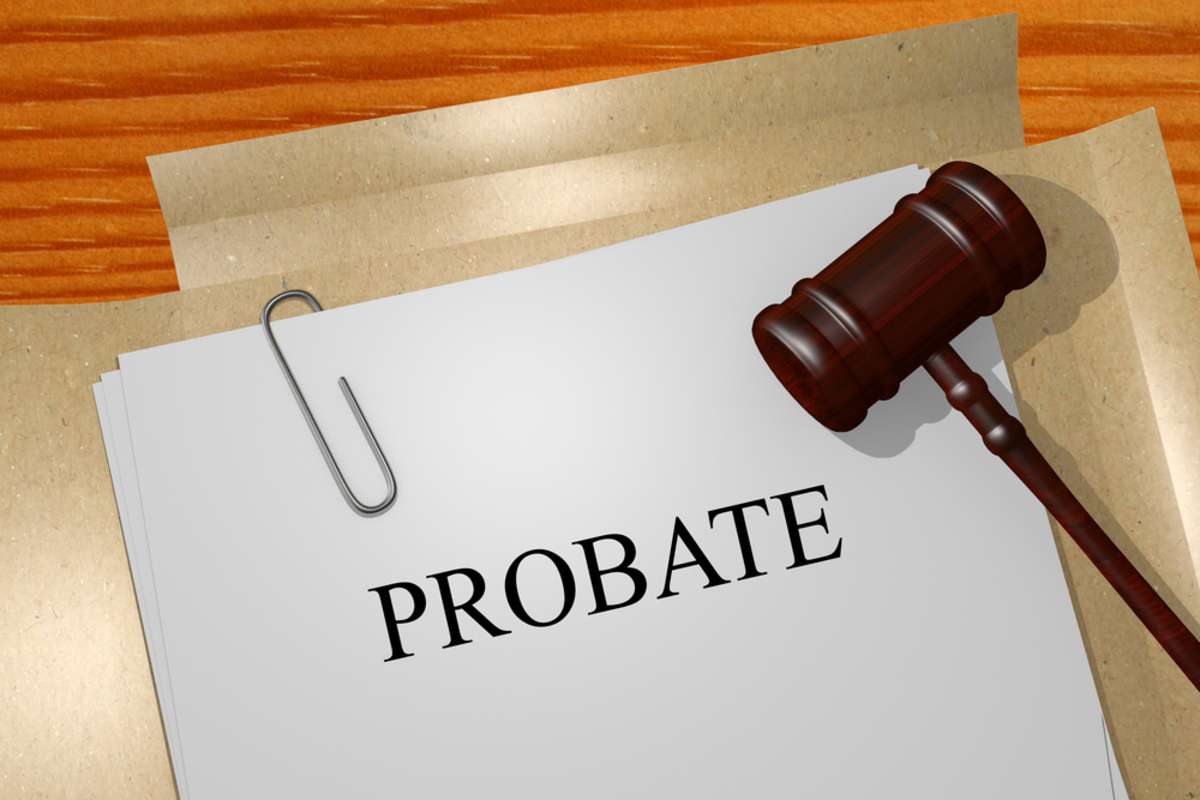Published September 19, 2022. Updated July 31, 2023.
Dealing with the death of your parents is always challenging, but handling their estate and your sadness together can be an emotional roller coaster. Inherited properties require important decisions to be made very soon after the funeral and burial arrangements. So, probate court is likely one of the last things you want to participate in while you are still grieving.
This is why many beneficiaries of inherited estates prefer to sell the home immediately as soon as it is in their legal possession. If you're in this situation, here's what to do next.
Determine the Status of the Estate
Your parents' estate after they pass away will end up in one of three categories:
If there was no will, then probate would be required. This is when the courts oversee the estate, including selling any property the deceased owned that was not willed to a designated beneficiary. Probate involves paying any creditors owed through the proceeds of the sale.
However, if there is a living trust, the responsibility for handling the home and estate goes to whoever is named as the beneficiary of the trust. These beneficiaries are then responsible for managing any remaining assets, including the home.
Living trusts allow the house and assets to avoid the probate process, which is one great benefit of having these documents in place.
Identify the Estate Administrator and Keep Interested Parties Informed
The estate administrator is responsible for your parent's home, belongings, and any leftover debt they owe after passing.
If the estate has passed through probate, the courts will determine who this administrator should be. However, in the event of a will or living trust, the administrator is whoever has been named as the beneficiary.
Settle Disagreements to Avoid Disputes
If everyone agrees with how the estate is divided, count yourself lucky. Many families struggle with this part after the death of elderly parents, especially if the family is blended and the estate ends up in probate court. Handling this challenge head-on as soon as possible will save stress further down the road.
Settle Disagreements to Avoid Disputes
If everyone agrees with how the estate is divided, count yourself lucky. Many families struggle with this part after the death of elderly parents, especially if the family is blended and the estate ends up in probate court.
However, if disagreements come up, it's crucial to handle this challenge head-on as soon as possible to save stress further down the road.

Find all the Documents Related to Finances
There is more to handling your parents' financial accounts after they pass than locating the will or trust. You will also need to find important documents related to their insurance policies, prepaid funeral or burial arrangements, bank and savings accounts, and retirement plans.
This should be a relatively straightforward process as long as your parents had enough foresight to include their children in their long-term financial planning strategy.
Check the Homeowner's Insurance
It's also important to inform your parents' homeowners insurance company of their death. In many cases, you'll have only 30 days to do this, and it can get tricky if the home is in probate.
No matter the situation, be sure the insurance coverage doesn't lapse before the sale, as it could cause problems while the house is on the market.
Keep the Property Safe
While dealing with your grief and determining what will happen to the inherited property, one thing you don't want to happen is a break-in or vandalism while the home sits empty. This is especially true if the estate will be going through probate, which could take several months to complete.
Make sure someone keeps an eye on the home, maintains the lawn, collects the mail, and watches for any signs of break-ins or vandalism.
Consult a Tax Professional Before Selling the Home
It often surprises people to learn that they might be responsible for capital gains tax if the home increases significantly in value from the moment you inherit it until the time it sells.
Be sure to consult a tax professional before making your final decision.
Go Through Your Parents' Belongings
One of the most challenging parts of dealing with the home belonging to your parents following their deaths is going through their belongings to get the house ready to sell. It's a process that can be both emotional and draining, so be prepared for some hard choices when determining what you should keep and what you should give away or sell.
Recruiting your friends and family to help will provide important companionship during this challenging task since they can help you make the right choices after inheriting a house full of things you might not want.
Find an Agent That Has Handled Inherited Homes Before
To finalize a sale, you'll want a real estate agent to help you list and sell the home. Of course, if you can hire an agent everyone in the family trusts, that's even better.
You can choose an agent at any time during this process. However, when you hire a real estate agent early on who has experience with probate or inherited property sales, you and your siblings can rest assured that they can direct you through the process.
No matter who you choose or when, be sure that the agent is licensed in the same state as your parents' estate so they can use the local MLS to sell the home at a competitive price.
Get the Home Ready to be on the Market
For a home to be ready for the market, you should address several issues, including any repairs that need to be made.
Such repairs could range from patching holes in the ceiling or wall to replacing HVAC systems. Depending on the condition of the home, you could be in for a remodeling process that could take a while to complete. However, before you invest time and money into significant upgrades, ask your real estate agent to advise you on the best updates for the home to sell at a good price.

Avoid the Hassle of Inherited Properties With a Cash Buyer
Selling a home is stressful enough without the added emotional element of grief and frustrations of dealing with siblings and family members who may not all agree on the best solution for your parents' home.
To eliminate many of these steps and sell an inherited home quickly, cash buyers and a cash offer could be the right solution for you and your family.
These companies buy houses for cash, often offering fair prices and moving quickly to avoid delays in the process. With the right company, you can also avoid the time and expense of repairs or upgrades on a home that might be out of date and struggle to sell when listed traditionally.
Cash offers from reputable home-buying companies can be the relief you need to part with a home you inherited while relieving stress and mitigating competing opinions about what to do with the property.
Homefield Homebuyers Offers Cash for My House
If you'd rather not deal with the details of the probate process or repair an aging home that belonged to your parents, give yourself the space and time to grieve! Let someone else handle the rest by selling the home to a direct cash home buyer like Homefield Homebuyers.
We "buy houses cash, Minneapolis" within 24 hours of seeing your property and close in as little as a week. There is no need to hire a realtor, photographer, or staging professional or spend time and money getting your parents' house ready to sell. Take what is important to you, and we will take care of the rest!
Reach out to our team to learn more about how we can help.







Comments